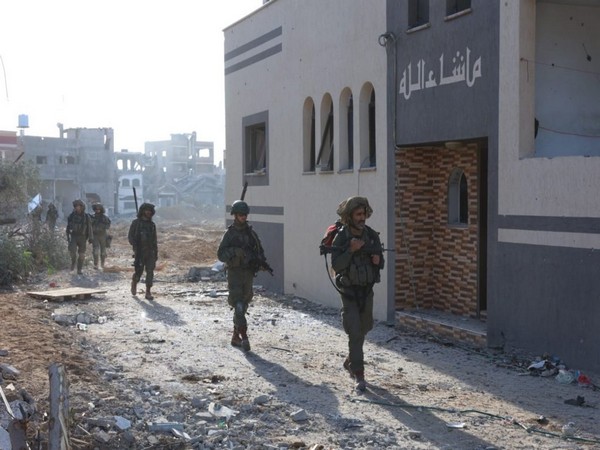Saudis could recognise Israel if Palestinian issue resolved
Jan 17, 2024
Jeddah [Saudi Arabia], January 17: Saudi Arabia's foreign minister said the kingdom could recognise Israel if a comprehensive agreement were reached.
That included statehood for the Palestinians, ambitious talk as the war between Israel and Hamas shows no sign of easing.
"We agree that regional peace includes peace for Israel, but that could only happen through peace for the Palestinians through a Palestinian state," Prince Faisal bin Farhan told a panel at the World Economic Forum in Davos.
Asked if Saudi Arabia would then recognise Israel as part of a wider political agreement, he said: "Certainly."
Prince Faisal said securing regional peace through the creation of a Palestinian state was "something we have been indeed working on with the U.S. administration, and it is more relevant in the context of Gaza".
Securing a normalisation deal with Saudi Arabia would be the grand prize for Israel after it established diplomatic ties with the United Arab Emirates, Bahrain and Morocco, and could transform the geopolitics of the Middle East.
The Sunni Muslim kingdom, the most powerful country in the Arab world and home to the most sacred sites in Islam, wields considerable religious clout across the globe.
After the eruption of war last October between Israel and the militant Palestinian group Hamas that rules Gaza, Saudi Arabia put on ice U.S.-backed plans for the kingdom to normalise ties with Israel, two sources familiar with Riyadh's thinking said, in a swift reordering of of its diplomatic priorities.
The two sources told Reuters there would be some delay in the U.S.-backed talks on normalisation of Saudi-Israel ties, which is seen as a key step for the kingdom to secure what it considers the real prize of a U.S. defence pact in exchange.
Before Oct. 7, when Iran-backed Hamas fighters launched an attack on southern Israel, both Israeli and Saudi leaders had signalled they were moving steadily towards establishing diplomatic relations that could have reshaped the Middle East.
The Palestinians want a state in territories captured by Israel in a 1967 war, with East Jerusalem as their capital. U.S.-sponsored negotiations with Israel on achieving that stalled more than a decade ago.
Among the hurdles have been Israeli settlement of occupied land and feuding between Western-backed Palestinian authorities and Hamas Islamists who reject coexistence with Israel.
"There is a pathway towards a much better future for the region, for the Palestinians, and for Israel, that is peace, and we are fully committed to that," said Prince Faisal.
". a ceasefire on all sides should be a starting point for permanent sustainable peace, which can only happen through justice to the Palestinian people."
Israel's hard-right government has played down the prospect of it making significant concessions to the Palestinians as part of any potential normalisation deal with Saudi Arabia.
The war in Gaza started when Hamas militants stormed into southern Israel on Oct. 7, killing 1,200 people and taking 240 hostages. Israel says more than 130 remain in captivity.
Israel responded to Hamas' assault with a siege, bombardment and ground invasion of Gaza that have devastated the tiny coastal territory and killed, Palestinian health officials say, more than 24,000 people.
The war has raised fears of wider regional instability. Lebanon's Iran-backed Hezbollah have frequently clashed along the border with Israel, while pro-Iranian militias have attacked U.S. targets in Iraq.
Attacks by Yemen's Iran-aligned Houthis have disrupted shipping in the Red Sea and they say they will not stop until Israel halts its bombardment of Gaza.
Source: Fijian Broadcasting Cooperation








